SHAKEN statistics for November 2021
We’ve collected SHAKEN statistics from our ClearIP customers from November 2021. This article reviews the evolution of SHAKEN activity, participation, and robocall trends since the SHAKEN/robocall mitigation implementation mandate.
Signed robocalls by attestation level
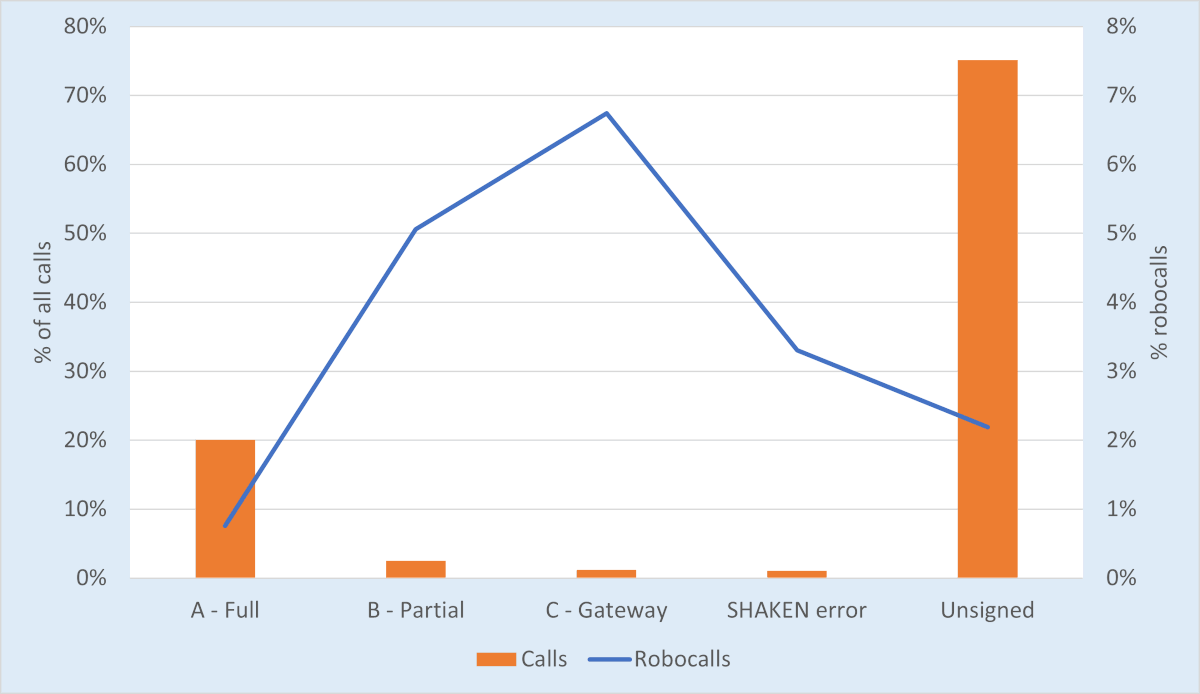
Figure 1. Calls and Robocalls by SHAKEN Verification Status — November 2021
Figure 1 shows calls and robocalls by SHAKEN attestation level or status. The orange bars are measured by the axis on the left, while the blue line, robocalls, is measured with the axis on the right.
In November 2021, 6.74% of calls signed with SHAKEN C - Gateway attestation were identified as robocalls by call analytics. Not far behind, 5.06% of calls signed with SHAKEN B - Partial attestation were identified as robocalls. At the same time, 2.19% of unsigned calls were identified as robocalls.
Robocallers aren’t fleeing from SHAKEN; they’re getting their robocalls signed with SHAKEN.
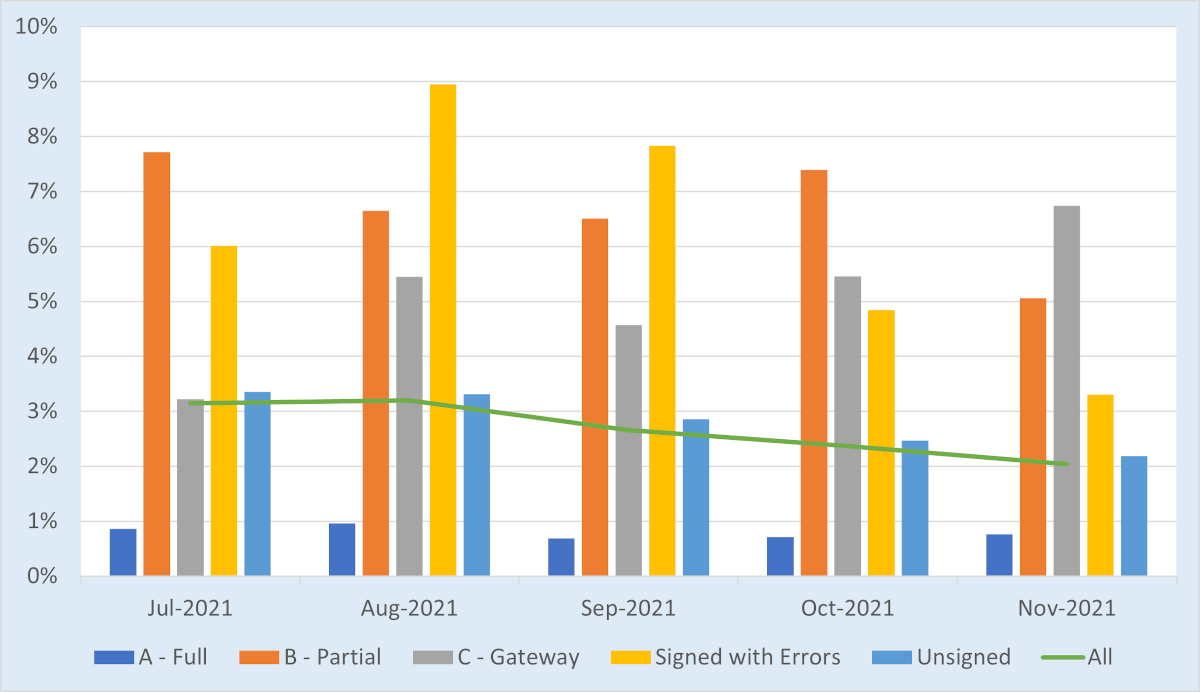
Figure 2. Robocalls by SHAKEN Verification Status – July–November 2021
Figure 2 shows trends for signed robocalls. The situation has evolved in several ways:
- In July, almost 8% of calls signed with partial attestation were robocalls. This trend continued through October.
- In November, there was a significant drop in robocalls among calls with partial attestation from 7.4% in October to 5.06% in November. That’s still a lot of robocalls being signed, but the trend is in a good direction.
- Calls signed with gateway attestation have become the haven for robocalls in November, when 6.74% of calls with C attestation were robocalls.
We have been reporting since July that many signed robocalls were signed by downstream intermediate providers for their upstream Originating Service Provider (OSP) customers. Perhaps some downstream providers are growing wary of signing calls with partial attestation. Let’s have a look at that.

Attestation level usage by provider type
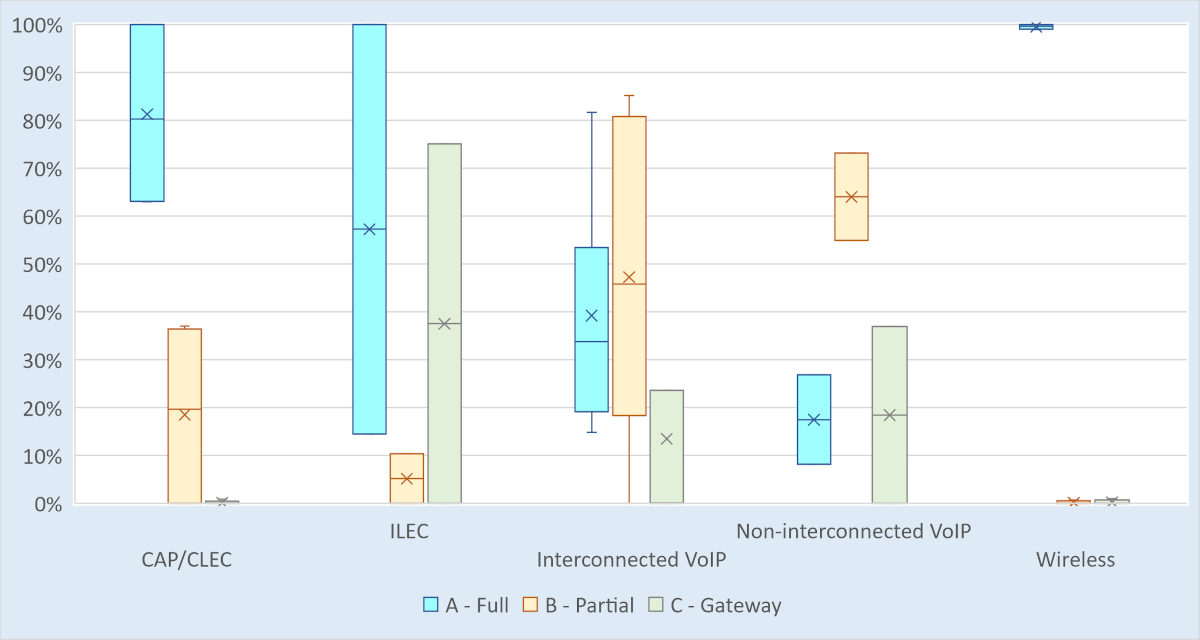
Figure 3: Attestation Ranges by Provider Type
Figure 3 shows the range of attestation levels used by provider type for the top 20 SHAKEN Originating Service Providers (OSPs) that sent signed calls to our ClearIP customers. The blue bars show the range of full attestations, the yellow bars show the range of partial attestations, and the green bars show the range of gateway attestations. Within each range, there’s an Χ showing the median point within the range.
For example, among Interconnected VoIP OSPs, the yellow bar shows that some signed 18% of their calls with partial attestation, while others signed 81% of their calls with full attestation. For Interconnected VoIP OSPs, the median use of partial attestation was 46%.
Non-interconnected VoIP OSPs are also signing a high percentage of their calls with partial attestation, in the 55–73% range, with a median of 64%. These numbers are similar to October 2021.
However, there was a drop in the use of partial attestation among CAP/CLEC OSPs from October to November. We will watch to see if this continues.
Originating service providers signing calls
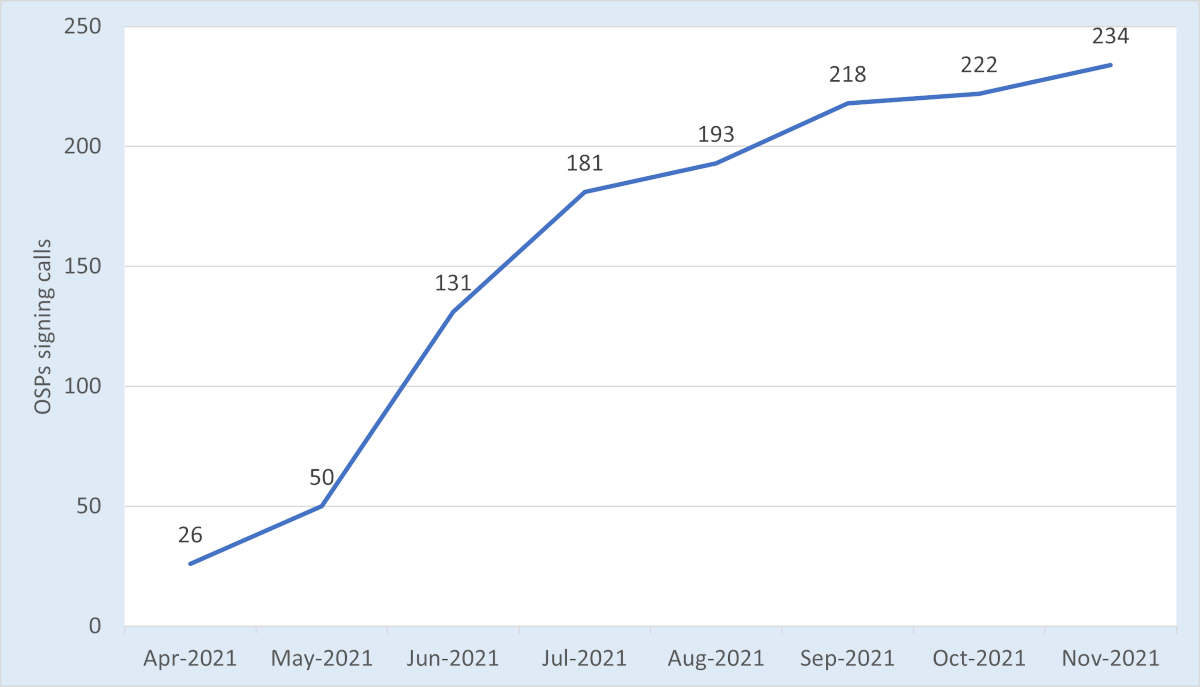
Figure 4. SHAKEN OSP Participation by Month
The number of SHAKEN OSPs sending signed calls to ClearIP users increased 5.4% in November.
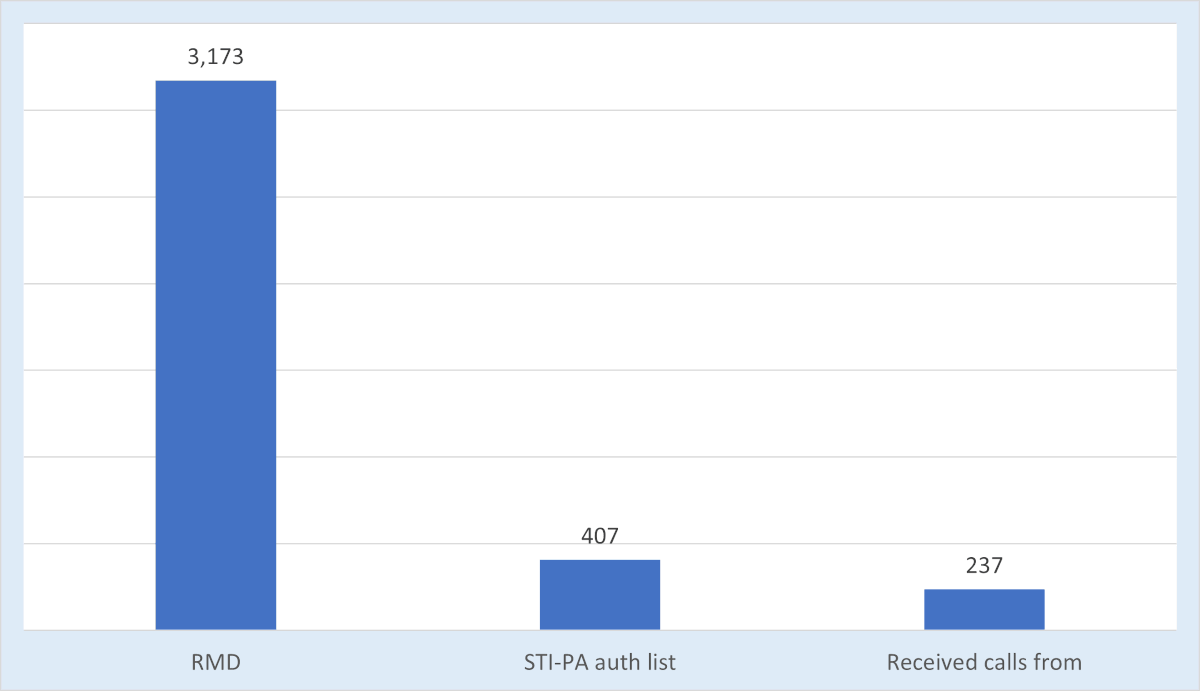
Figure 5. SHAKEN OSP Counts Differ
The disparity between SHAKEN implementations claimed in the Robocall Mitigation Database versus the number of SHAKEN authorized providers continues. Clearly, there are not 3,173 OSPs signing calls. The number of authorized SHAKEN providers, 407, is a much better measure of SHAKEN participation. It’s up slightly in November, from 398 in October.
Verification status and errors
The following table and chart show proportion of calls received that were signed, unsigned, and signed with errors.
| Verification status | April | May | June | July | August | September | October | November |
|---|---|---|---|---|---|---|---|---|
| No PASSporT | 97.15% | 93.62% | 90.58% | 83.47% | 75.81% | 74.89% | 74.75% | 75.15% |
| Successful | 2.83% | 6.20% | 8.95% | 15.57% | 23.17% | 24.16% | 24.11% | 23.77% |
| Errors | 0.02% | 0.18% | 0.48% | 0.96% | 1.02% | 0.96% | 1.14% | 1.08% |
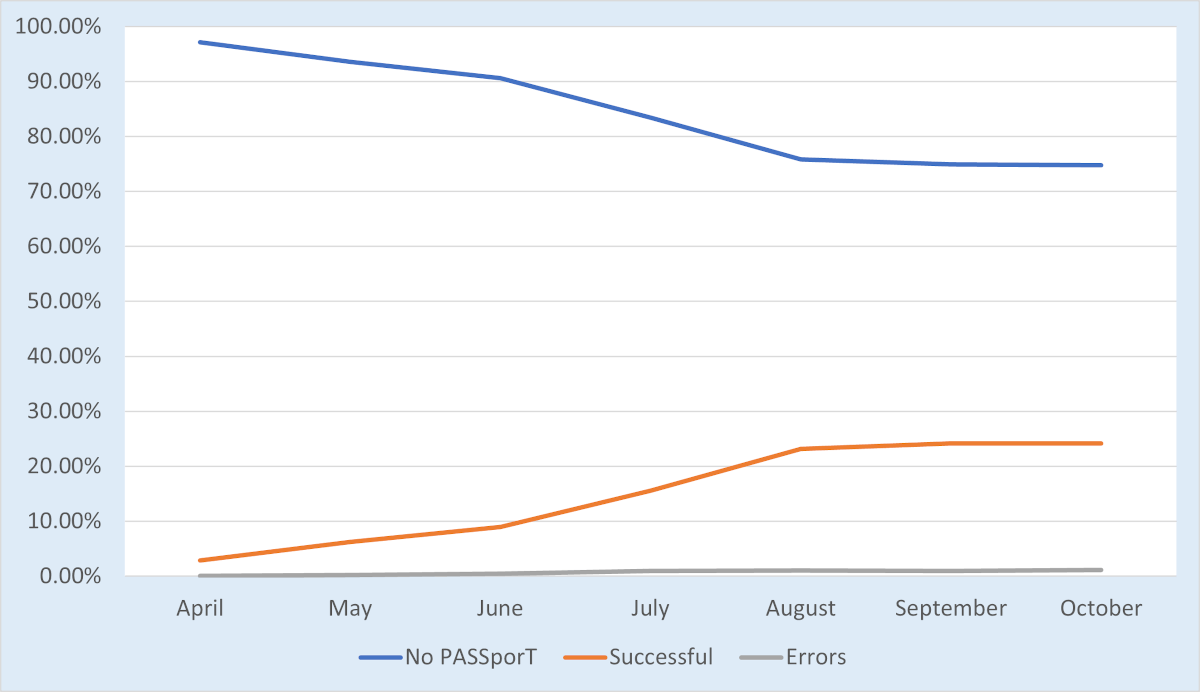
Figure 6. SHAKEN Verification Status Over Time
As with the number of SHAKEN OSPs, the percentage of signed calls seems to have reached an equilibrium point around 24%. It dropped 0.4% from October.
Our thoughts
There is good news in the November data:
- Robocalls are dropping, as shown by the green line in Figure 2, from around 3% in July to 2% in November.
- SHAKEN participation is growing slowly, as seen in Figure 4.
There are still some causes for concern:
- Robocalls aren’t running away from SHAKEN—they’re getting their calls signed. We’ve seen many calls signed with partial attestation, but this seems to be moving toward gateway attestation. Calls signed with gateway attestation are more than twice as likely to be robocalls as unsigned calls.
- We seem to have settled into an equilibrium point where only 24% of calls are signed.
How do we continue to make progress? Here are a few ways:
- Phase out the non-IP exclusion for the SHAKEN mandate, which will bring many more calls into the SHAKEN ecosystem. OSPs have three options:
- Replace TDM segments with IP.
- Use ISUP 21 signaling to relay attestation and create new PASSporTs downstream from a TDM call segment as described in ATIS-1000095.
- Use Out-of-Band SHAKEN to send PASSporTs over the internet, around non-IP segments, as described in ATIS-1000096.
- Require OSPs to be SHAKEN approved by the STI Policy Administrator in order to claim a SHAKEN implementation, else do robocall mitigation.
TransNexus solutions
We offer STIR/SHAKEN and robocall mitigation solutions in our ClearIP and NexOSS software platforms. We can make your STIR/SHAKEN deployment a smooth process.
We provide an STI-CPS, the TransNexus CPS, which is available to any SHAKEN-authorized service provider free of charge. It’s part of the national network of STI-CPSs. We can also provide a private STI-CPS, either hosted or on-premises, to service providers.
Contact us today to learn more.
Our STIR/SHAKEN products:
- Work with your existing network
- Support SIP and TDM
- Affordable, easy to deploy